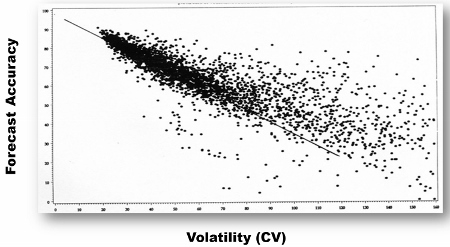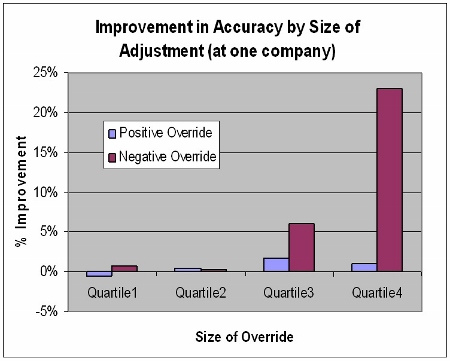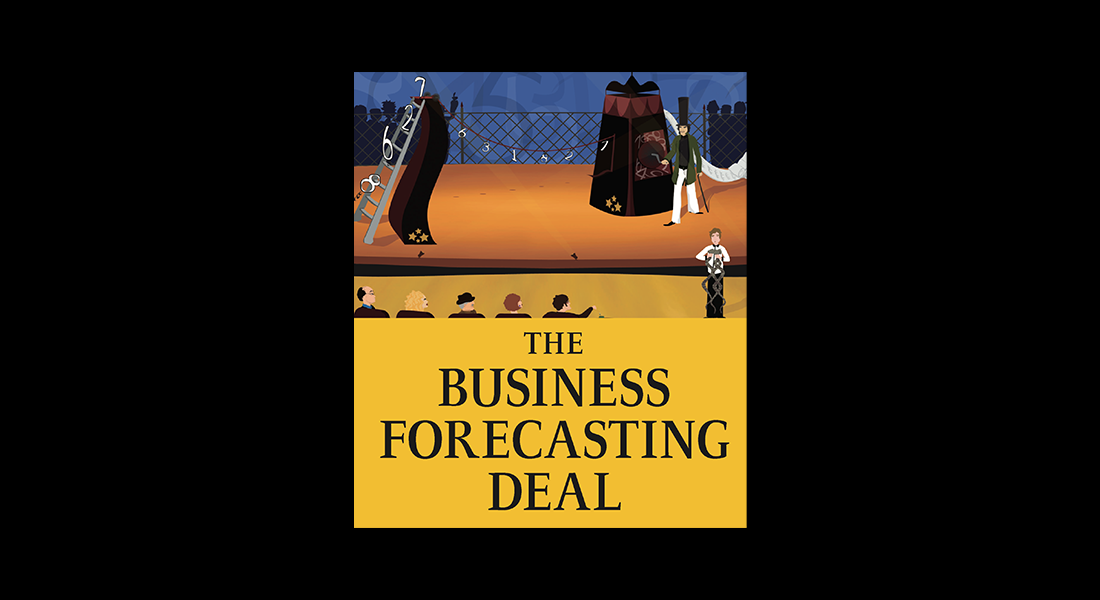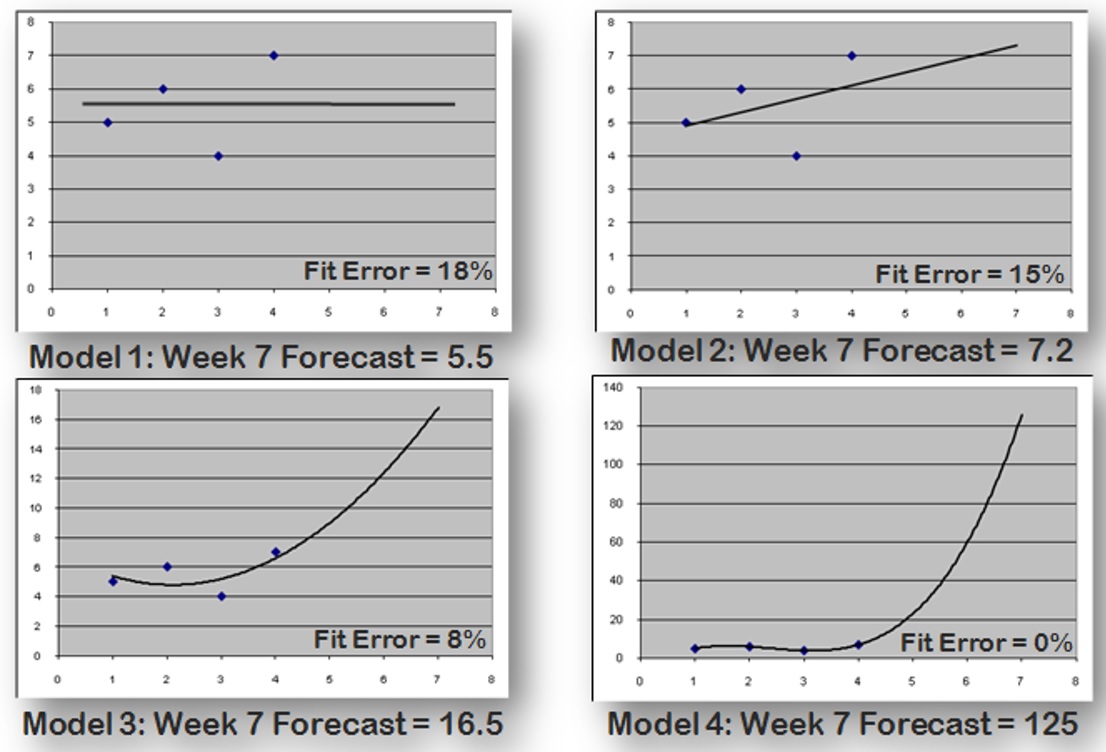The Business Forecasting Deal
Exposing bad practices and offering practical solutions in business forecasting
The Aphorisms of the New Defensive Paradigm I want to finish this blog series with a set of 7 aphorisms – concise statements of principle – that characterize the new Defensive paradigm for business forecasting. The first is that: Aphorism 1: Forecasting is a Huge Waste of Management Time This

Academic Research In an approach akin to FVA analysis, Paul Goodwin and Robert Fildes published a frequently cited study of four supply chain companies and 60,000 actual forecasts.* They found that 75% of the time an analyst adjusted the statistical forecast. They were trying to figure out, like FVA does,

Typical Business Forecasting Process Let’s look at a typical business forecasting process. Historical data is fed into forecasting software which generates the "statistical" forecast. An analyst can review and override the forecast, which then goes into a more elaborate collaborative or consensus process for further adjustment. Many organizations also have

The Means of the Defensive Paradigm The Defensive paradigm pursues its objective by identifying and eliminating forecasting process waste. (Waste is defined as efforts that are failing to make the forecast more accurate and less biased, or are even making the forecast worse.) In this context, it may seem ridiculous

Why the Attraction for the Offensive Paradigm? In addition to the reasons provided by Green and Armstrong, I'd like to add one more reason for the lure of complexity: You can always add complexity to a model to better fit the history. In fact, you can always create a model

Fresh from chairing the Foresight Practitioner Conference on “Worst Practices in Business Forecasting,” hosted two weeks ago at the Institute for Advanced Analytics at North Carolina State University, Foresight editor-in-chief Len Tashman previews the Fall 2016 issue. Preview of the Fall 2016 issue of Foresight In the provocative article, “The
